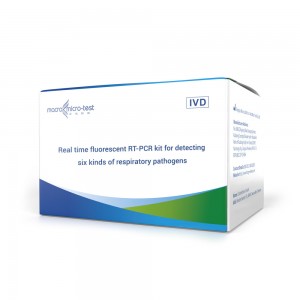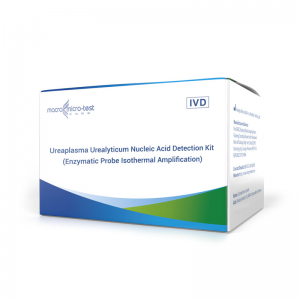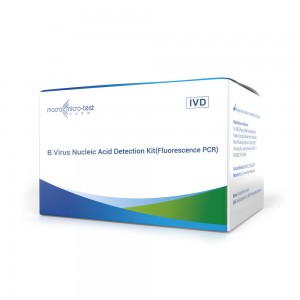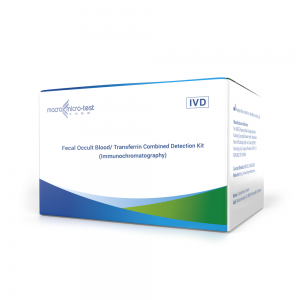Aspirin Safety Medication
Product name
HWTS-MG050-Aspirin Safety Medication Detection Kit(Fluorescence PCR)
Epidemiology
Aspirin, as an effective anti-platelet aggregation drug, is widely used in the prevention and treatment of cardiovascular and cerebrovascular diseases.The study finds that some patients have been found to be unable to effectively inhibit the activity of platelets despite long-term low-dose aspirin use, that is, aspirin resistance (AR). The rate is about 50%-60%, and there are obvious racial differences. Glycoprotein IIb/IIIa (GPI IIb/IIIa) plays an important role in platelet aggregation and acute thrombosis at sites of vascular injury. Studies have shown that gene polymorphisms play an important role in aspirin resistance, mainly focusing on GPIIIa P1A1/A2, PEAR1 and PTGS1 gene polymorphisms. GPIIIa P1A2 is the main gene for aspirin resistance. Mutations in this gene change the structure of GPIIb/IIIa receptors, resulting in cross-connection between platelets and platelet aggregation. The study found that the frequency of P1A2 alleles in aspirin-resistant patients was significantly higher than that in aspirin-sensitive patients, and patients with P1A2/A2 homozygous mutations had poor efficacy after taking aspirin. Patients with mutant P1A2 alleles undergoing stenting have a subacute thrombotic event rate that is five times that of P1A1 homozygous wild-type patients, requiring higher doses of aspirin to achieve anticoagulant effects. The PEAR1 GG allele responds well to aspirin, and patients with AA or AG genotype who take aspirin (or combined with clopidogrel) after stent implantation have high myocardial infarction and mortality. The PTGS1 GG genotype has a high risk of aspirin resistance (HR: 10) and a high incidence of cardiovascular events (HR: 2.55). The AG genotype has a moderate risk, and close attention should be paid to the effect of aspirin treatment. The AA genotype is more sensitive to aspirin, and the incidence of cardiovascular events is relatively low. The detection results of this product only represent the detection results of human PEAR1, PTGS1, and GPIIIa genes.
Technical Parameters
| Storage |
≤-18℃ |
| Shelf-life | 12 months |
| Specimen Type | Throat swab |
| CV | ≤5.0% |
| LoD | 1.0ng/μL |
| Applicable Instruments | Applicable to type I detection reagent:
Applied Biosystems 7500 Real-Time PCR Systems, QuantStudio®5 Real-Time PCR Systems, SLAN-96P Real-Time PCR Systems (Hongshi Medical Technology Co., Ltd.), LineGene 9600 Plus Real-Time PCR Detection Systems (FQD-96A, Hangzhou Bioer technology), MA-6000 Real-Time Quantitative Thermal Cycler (Suzhou Molarray Co., Ltd.), BioRad CFX96 Real-Time PCR System, BioRad CFX Opus 96 Real-Time PCR System. Applicable to type II detection reagent: EudemonTM AIO800 (HWTS-EQ007) by Jiangsu Macro & Micro-Test Med-Tech Co., Ltd. |
Work Flow
Micro-Test Automatic Nucleic Acid Extractor (HWTS-3006C, HWTS-3006B))by Jiangsu Macro & Micro-Test Med-Tech Co., Ltd.
The extracted sample volume is 200μL and the recommended elution volume is 100μL.








